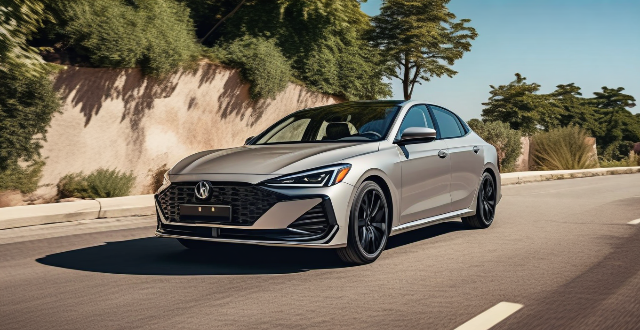The impact of car brand on price is significant, as the brand name carries certain connotations and expectations that affect the perceived value of a vehicle. Factors such as perceived quality, market perception, innovation, exclusivity, after-sales service, and resale value all contribute to the price of a car. Luxury brands command premium prices due to their association with quality and exclusivity, while mainstream brands are known for reliability and affordability. Economy brands focus on providing good value for money. A strong brand reputation and loyalty can support higher pricing. Brands known for technological innovation often come with advanced features that justify higher prices. Limited edition models and customization options also increase the price. After-sales service and warranty offerings can contribute to a higher initial price. Finally, cars from brands that hold their value well or are popular in the used car market can command higher prices for their new vehicles.

The Impact of Car Brand on Price
The brand of a car significantly affects its price. This is because the brand name carries with it certain connotations and expectations that can influence the perceived value of the vehicle. Here's a detailed breakdown of how:
1. Perceived Quality
- Luxury Brands: Cars from luxury brands are often priced higher due to their association with quality, exclusivity, and advanced engineering. Brands like Mercedes, BMW, and Lexus command premium prices for their vehicles.
- Mainstream Brands: These brands, such as Toyota, Honda, and Ford, are known for reliability and affordability. Their prices are generally lower than luxury brands but may be higher if they offer advanced features or unique designs.
- Economy Brands: Brands like Chevrolet, Hyundai, and Kia focus on providing good value for money. Their cars are often priced lower than mainstream brands, targeting budget-conscious buyers.
2. Market Perception
- Brand Reputation: A strong brand reputation can justify a higher price point. For instance, Tesla's reputation for innovation allows it to charge premium prices for its electric vehicles.
- Brand Loyalty: Some brands have a loyal customer base that is willing to pay more for their preferred brand's vehicles. This loyalty can create a stable demand that supports higher pricing.
3. Innovation and Technology
- Advanced Features: Cars from brands known for technological innovation, like Tesla or Audi, often come equipped with cutting-edge features that justify their higher price tags.
- Research and Development: Brands that invest heavily in R&D can pass on some of these costs to consumers, leading to higher prices for their vehicles.
4. Exclusivity and Limited Production
- Limited Edition Models: Some brands release limited edition models or special editions that are priced higher due to their exclusivity and additional features.
- Customization Options: Luxury brands often offer extensive customization options, which can significantly increase the price of a car.
5. After-sales Service and Warranty
- Extended Warranties: Some brands offer longer warranties or additional services like free maintenance for a certain period, which can contribute to a higher initial price.
- Customer Service: Brands known for excellent customer service can charge more for their vehicles, as this service is seen as a valuable addition to the overall package.
6. Resale Value
- Depreciation Rates: Cars from certain brands hold their value better than others. This can affect their initial price, as buyers consider the long-term investment.
- Popularity in the Used Car Market: Brands whose used cars are in high demand can command higher prices for their new vehicles, knowing that they will retain value over time.
In conclusion, the brand of a car plays a crucial role in determining its price. From perceived quality and market perception to innovation and after-sales service, various factors associated with a brand influence how much a car is priced.